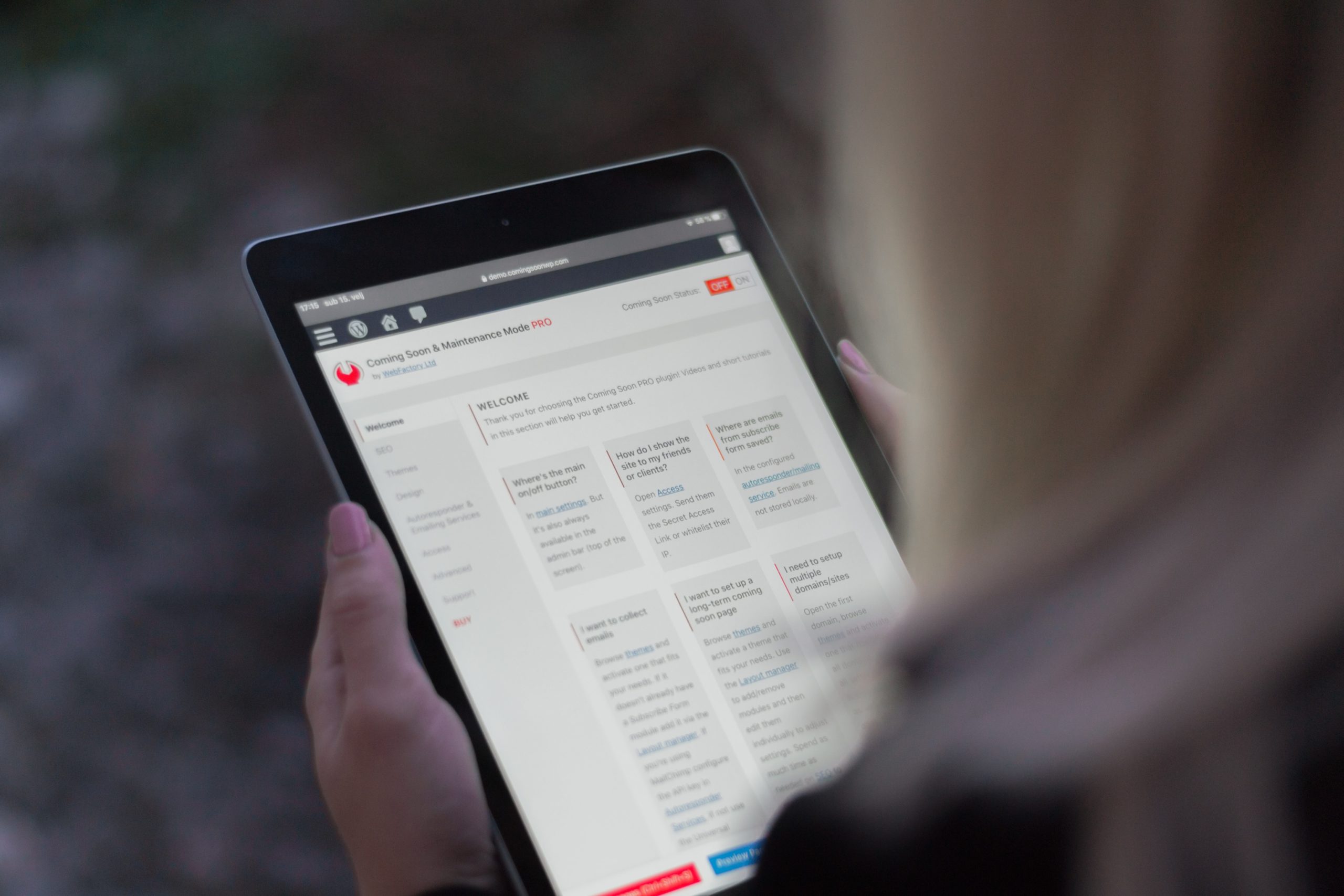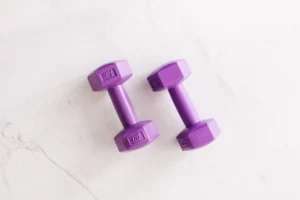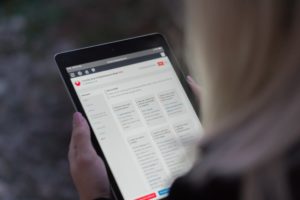Having your name in the paper is nice, but it is also good for business. Nowadays, anyone can write articles about anything, especially about themselves! In order to stand out from the crowd, being able to talk about yourself in the press makes a lot of sense.
The goal of press relations is to get the media interested in your activity as a training company or freelance trainer. There are a lot of advantages to being mentioned in the written press, online media or audiovisual press.
Being well-known. The readers or listeners are targets you would not have been able to reach solely through your sales and marketing activities. We adopt an open attitude when viewing or listening to media. We take in what we read or hear and are willing to discover new things.
Being credible. When the media takes an interest in you it is because they identify an interest for their readers or audience. It is a way of showing your corporate and individual clients and your partners that you are different and that your offer is unique.
Being better referenced. Being well-known is the number one criteria for rising to the top of Google search results. If media with a large following link to your pages, they gain value for the robots scanning the pages.
When to contact the media?
The first rule is to contact the press for one reason at a time. Choose the top priority subject that you want to promote. The journalist is then free to broaden the scope of the piece if they wish.
The creation of your training company. This event may interest the local press, in a section entitled “Local Life” or in the economic section, for example. The journalist may do a profile on you, asking you to describe your background and what led you to create your business.
A particular event. Perhaps you are holding an open day or a careers day or are organizing an introductory workshop, etc. Communicating about events that are free of charge and accessible for all is more likely to bear fruit than promoting paid events or those restricted to a limited audience.
The growth of your business. Perhaps you are opening a new training centre or creating an offer linked to the local economy.
‘Special’ days. The press regularly produce ‘evergreen’ content: topics covered each year, like the start of the new school year, the changing of the clocks, Christmas, etc., some of which may be relevant to your business. A few weeks before the event is a good time to propose topics connected to particular themes. Journalists rack their brains each year trying to find something new to say that sums up the theme and tells a story that everyone will want to hear.
News within your sector. As an expert in the field, you can unlock the mysteries of complex subjects. This is a rare and highly sought-after skill. You can bring ideas to the table in this respect. One example of a value proposal may be to conduct a study accompanied by a graph.
To be avoided: a press release focused on an offer of training or a company sales presentation.
Which media to contact?
The barriers have broken down between the written press, the online press and the audiovisual press. Most newspapers are also online media outlets and produce videos. Some are only accessible online: these are known pure players, either on a national or local scale. Audiovisual media also fill their websites with articles.
The local press. These newspapers are distributed within a town or, as regards the daily regional press, on a regional or county scale, with local editions. The journalists are particularly interested in anything that livens up the area and shows how dynamic it is.
The national press. To be clear, trying to engage in press relations with the national press is a big job, unless they concern ultra-targeted operations to which you have a pioneering and unique approach.
The professional and specialized press. Depending on your specialized field(s), this is really about promoting your expertise. Think about professions (IT, graphic design, finance, etc.) and how they complement certain sectors (automotive, e-commerce, healthcare, etc.).
TV and radio. In order to attract interest, propose items that are impactful from a visual and audio point of view for TV. Airtime is more restricted than the number of pages in a newspaper, whether printed or online, so getting the message across is more difficult but not impossible.
Press agency. Whether general or specialized, press agencies feed into other media by producing articles and reports on breaking news.
> There is no such thing as a ‘small’ publication. Whatever the circulation or awareness of the media, or indeed the length of the article, any positive reference to or mention of your company is worth the while. Even a brief announcement of an upcoming event can generate valuable business. Press relations are not ‘one shot’. The aim is forge a long-term identity as a source of information and a dynamic business.
How to prepare?
How does it work when a journalist contacts you?
Get the journalist to talk first. Start by asking them questions to narrow down their request and show you are interested in them:
- What is the topic of their piece? Is it a piece on you that you asked them to produce, or is it a topic for which several people or companies will be interviewed?
- What information are they looking for? The journalist may just be starting to delve into the subject and may be looking for insights without yet knowing what they are going to write. It is in your interest to help them!
- How can you help them? Journalists are often looking for testimonials from companies, professionals, participants, etc. As a training company, you provide access to these valuable sources. Accept your role as a guide, whether or not you are cited.
It is important to clearly identify the media, even if this means checking it really exists or the name of the journalist, if you are in any doubt. On the other hand, knowing the number of readers, the type of readership and the date of publication is not particularly significant. This would be important if you were purchasing advertising space. Don’t come across as being ‘difficult’. Listen and hear the request, before deciding whether or not to respond.
Be prepared to talk. The journalist wants to know: The 5 Ws: Who, What, Where, When and Why? A press release or email must contain these five things. The same applies to an oral exchange. Let yourself by guided by the journalist’s questions, but have this key information to hand.
What? What is the event that is happening?
Who? What actors are involved?
Where? What is the geographical area and location?
When? The date or period.
How? What is your method, style and personal touch?
How many? Key figures: participants, budget, study results, etc.
Why? What is the purpose of the approach/project? What need does it fulfil?
What are the tools for managing press relations?
The press release. This is single page document (or two pages maximum) presenting the main topic you want to communicate about, using the famous 5 Ws. Forget adjectives such as ‘innovative’, ‘dynamic’, ‘high-quality’, etc. Let the journalist judge for themselves or hear it from the company interviewed in response. You can replace or summarize the press release in a detailed email. The title of the email should set the tone: who, what and when? A minimum number of clicks is always preferable.
Rather than a set press release, here you can provide information tailored to the particular media in question, corresponding to their interests and target audience or readership. You are more likely to strike a chord with an email crafted with care.
The press pack. This is a more comprehensive document presenting your training company in more detail and in several parts: the directors, the team, the expertise, examples of assignments, customer references, key figures, etc. It is not essential but it good to have one ready in case you are asked for it. The aims is to facilitate access to information and offer ideas for further, complementary topics. It is not a sales brochure.
The visuals. You should prepare some photos of the company premises, the team and the training courses. For course photos, make sure the participants’ faces are not visible. Otherwise, even if you had them sign a consent form during the course authorizing you to use their image on social media, ask them for additional formal consent to use their image in the press. If the journalist asks to take photos, say ‘yes’. This will have greater value.
The press conference. To be clear, press conferences are reserved for major media-intensive situations when the press is looking for strategic information: political news, sporting news, etc. To be avoided, therefore!
The press file. This is your dashboard for press relations. It contains journalists’ contact details and how much contact you have had with them (press release sent, telephone exchange, etc.). ‘Off-the-shelf’ press files are available for purchase, including a large number of media outlets and listing forthcoming topics. If you are new to press relations, step no. 1 is to create your own database. A dozen highly qualified contacts–because carefully selected—are more effective than peppering a random list of emails. To identify the right contacts, note the names of journalists writing articles in your targeted fields, consult lists of newspaper contributors and call to find out how best to contact them. Each publication has its own way of doing things.
The press area. This is the area dedicated to press relations on your website. It must contain at least the following: your latest press releases, the press pack and press contact details (email and mobile phone number). You can also include visuals to download, if relevant.
The reminders. These are more an action than a tool but are just as essential. When you send out a press release, be sure to follow it up with a telephone call in the days that follow to make sure it has been received, spark an interest and anticipate any questions.
Who is involved in press relations?
The press officer. This is the job of the person responsible for press relations, either within the company or in a press relations agency. A press officer must be reachable at all times! If you are the manager of a company, you cannot be your own press officer. In large companies, the term ‘press office’ is used to refer to the team responsible for press relations.
The press contact. In the absence of a dedicated press officer, indicate a press contact who should be the first port of call for journalists. This may be yourself. In this case, make sure you are reachable within a reasonable amount of time. This position is not really compatible with being a full-time trainer.
The press relations agency. A press relations agency or freelance press officer conducts press relations for different companies and organizations. You prepare your press campaign together. The professional contributes their knowledge of the media and their expectations. They provide advice on the choice of subjects and messages. Outsourcing does not mean offloading. A press relations strategy takes time. It must be closely in line with your company strategy.
The journalist. The journalist searches for information, conducts interviews, travels around, takes photos and records sounds and videos (alone or with their photographer/cameraman).
Freelance journalists work for several media outlets. The advantage for you: a particular subject may inspire them to write articles for several outlets.
The editor in chief or section editor. The editor in chief is the ‘head’ of the editorial team. It is the editor who orders an article. It is also the editor who assesses it, edits it and decides whether or not to publish it. Surprises are possible. It is not always the fault of the journalist with whom you were in contact if the result is not what you were expecting. Feel free to ask questions in order to understand, if this is the case.
The local press contact. This is someone who writes articles for the regional daily press but for whom it is not their main job. They cover what’s going on in a particular town or neighbourhood.
Press club and journalists’ association. These networks or associations are formed of journalists per city/region or per business sector. They compile directories, either online or in paper form, listing their members and their areas of speciality.
Your questions answered
Do I have the right to read the article before publication? Journalists have very different ways of doing things and opinions on the matter depending on the media, the date of publication (within a few hours), the technical nature of the subject, etc. Generally speaking, the answer will be no. Hence, avoid asking to ‘proofread the article’. You can ask to proofread the quotes, bearing in mind that you risk not being quoted at all.
You can offer further help along the lines of ‘if you have any questions regarding certain technical points, feel free to ask’. As a precaution, send a message straight after the interview providing some additional key figures. Take this opportunity to remind the journalist of the key information you want to get across: the company creation date, the number of employees, the number of people trained per year, the number of subscribers (online training), a company with 1 or 2 partners, the sources of the figures provided, etc. Facts, more facts and nothing but the facts.
I have been asked to give an interview within the hour. This is how the daily press, radio and TV like to play the game. Even if it is not a ‘hot’ topic, it is often produced the same day. Be readily available so that the article can be wrapped up that day or for the next edition. However urgent it is, when you have the journalist on the other end of the phone, agree to answer their questions immediately rather than making another appointment. If you don’t have the answers to any of their questions, you can always send them more information afterwards. If they get the information from you, they won’t go looking elsewhere.
Should I agree to a telephone interview? This is a very common form of interview. When the journalist is in your geographical area, offer to meet, including at the end of the conversation to visit the premises or attend the event.
Is it free? Yes. A journalist is never paid by the people they interview. Other media professionals may contact you to sell you advertising, but these are two separate activities. Confusion can sometimes arise, particularly in the case of an opinion piece. Ask the simple question ‘is it free?’ in order to get off on the right foot.
A journalist calls me out of the blue. This can be a pleasant surprise: someone gave them your name or they found you in the course of their search for an expert/testimonial. Or it can be a nasty surprise. A journalist’s work involves bad news as well as good. If you are the subject of some ‘unpleasant’ storyline (labour dispute, financial litigation, poor service, accidents, etc.) it is in your interest to communicate regardless. Ideally, take at least a few hours to prepare. The phrase ‘declined to answer our questions’ never makes a good impression. Any attempt to hide or distort information is in vain. If, however, someone contacts you for information about a sensitive subject that does not concern you directly, feel free to say no. If you put yourself forward as an expert, to explain a ‘disaster’, for example, be sure you are up to it and weigh the risk carefully.
Finally, should I manage my press relations myself or should I get help? Both are possible. If you do it yourself, you will be forced to ask yourself some interesting questions, which will be intellectually stimulating. You can take this route for ‘exploratory’ press relations. After the strategy phase, if you or someone in your team can dedicate several days to creating the necessary tools and contacting journalists then one or two days per month for follow up, give it a go. You must, however, have a certain ‘knack’ for it. This will become clear pretty quickly. Once you have done it yourself, you can assess whether or not you need to engage additional skills. If you have a very precise goal such as a major event, for example, finding the right support is essential. Request a quotation from various agencies or freelancers. Be aware, however, that you will still need to spend time on designing the strategy, monitoring the service, etc. and, if everything goes well, speaking to journalists.
We have had something published in the press, what next?
Express your thanks. It is polite to send a word of thanks after the publication or broadcast.
Share it on social media. This is the perfect opportunity to post a message on social media with a link to the article. Mention the accounts of the journalist and the media outlet in question, as well as other people cited in the article. Don’t just say ‘Great, we’re in the paper’. Contextualize the subject of the article.
Ask for a link to your website. Sometimes you only need to ask. If it is not company policy, however, there is no point insisting.
Contact them again on new topics. Maintain the relationship with the journalist by proposing new topics or asking what they are working on at the moment.
The press will not mention you if you don’t give them good reason to. Read the papers and put yourself in the place of the reader or listener. What you have to say must be of interest to them. As a reader, ask yourself what you are interested in knowing (or not) about others and apply the same principle to yourself.












